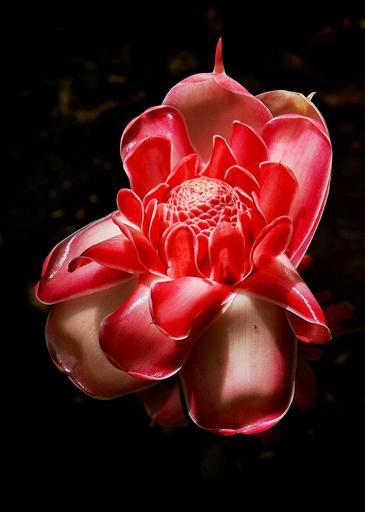MAKE A MEME
View Large Image

| View Original: | Rose_de_Porcelaine.jpg (1141x1600) | |||
| Download: | Original | Medium | Small | Thumb |
| Courtesy of: | www.flickr.com | More Like This | ||
| Keywords: dsc01855 rose de porcelaine rosedeporcelaine etlingera elatior (jack) r.m. sm etlingeraelatiorjackrmsm nicolaia elatior (jack) horan nicolaiaelatiorjackhoran alpinia magnifica roscoe alpiniamagnificaroscoe nicolaia imperialis horan nicolaiaimperialishoran zingiberaceae - zingibéracées zingiberaceaezingibéracées fleur flower ile de la réunion iledelaréunion la reunion island lareunionisland st gilles les bains stgilleslesbains jardin d'eden jardindeden 2013 sony nex-3 sonynex3 sel1855 974 black background plant photo border bright "La rose de porcelaine (Etlingera elatior) est une espèce appartenant au genre Etlingera de la famille des Zingiberaceae, originaire de Malaisie. Elle est appelée ginger torch dans les pays anglo-saxons et bastón de emperador (bâton de l'empereur) dans les pays hispanophones." ----------------------------------------------------------------------------------------------------------------------- "Etlingera elatior (also known as Torch Ginger, Ginger Flower, Red Ginger Lily, Torch Lily, Wild Ginger, Combrang, Bunga Kantan, Philippine Wax Flower, Xiang Bao Jiaing, Indonesian Tall Ginger, Boca de Dragón, Rose de Porcelaine, Porcelain Rose) is a species of herbaceous perennial plant[citation needed]. Botanical synonyms include Nicolaia elatior,[1] Phaeomeria magnifica,[1] Nicolaia speciosa, Phaeomeria speciosa, Alpinia elatior, Alpinia magnifica. The showy pink flowers are used in decorative arrangements while the flower buds are an important ingredient in the Nonya dish laksa. In North Sumatra, the flower buds are used for a dish called arsik ikan mas (Andaliman/Szechuan pepper Spiced Carp) It is known in Indonesian as bunga kecombrang or honje, Malay as bunga kantan and Thai as ดาหลา daalaa. In Thailand it is eaten in a kind of Thai salad preparation.[2] In Karo, it is known as asam cekala (asam meaning 'sour'), and the flower buds, but more importantly the ripe seed pods, which are packed with small black seeds, are an essential ingredient of the Karo version of sayur asam, and are particularly suited to cooking fresh fish." Souce: Wikipedia "La rose de porcelaine (Etlingera elatior) est une espèce appartenant au genre Etlingera de la famille des Zingiberaceae, originaire de Malaisie. Elle est appelée ginger torch dans les pays anglo-saxons et bastón de emperador (bâton de l'empereur) dans les pays hispanophones." ----------------------------------------------------------------------------------------------------------------------- "Etlingera elatior (also known as Torch Ginger, Ginger Flower, Red Ginger Lily, Torch Lily, Wild Ginger, Combrang, Bunga Kantan, Philippine Wax Flower, Xiang Bao Jiaing, Indonesian Tall Ginger, Boca de Dragón, Rose de Porcelaine, Porcelain Rose) is a species of herbaceous perennial plant[citation needed]. Botanical synonyms include Nicolaia elatior,[1] Phaeomeria magnifica,[1] Nicolaia speciosa, Phaeomeria speciosa, Alpinia elatior, Alpinia magnifica. The showy pink flowers are used in decorative arrangements while the flower buds are an important ingredient in the Nonya dish laksa. In North Sumatra, the flower buds are used for a dish called arsik ikan mas (Andaliman/Szechuan pepper Spiced Carp) It is known in Indonesian as bunga kecombrang or honje, Malay as bunga kantan and Thai as ดาหลา daalaa. In Thailand it is eaten in a kind of Thai salad preparation.[2] In Karo, it is known as asam cekala (asam meaning 'sour'), and the flower buds, but more importantly the ripe seed pods, which are packed with small black seeds, are an essential ingredient of the Karo version of sayur asam, and are particularly suited to cooking fresh fish." Souce: Wikipedia | ||||